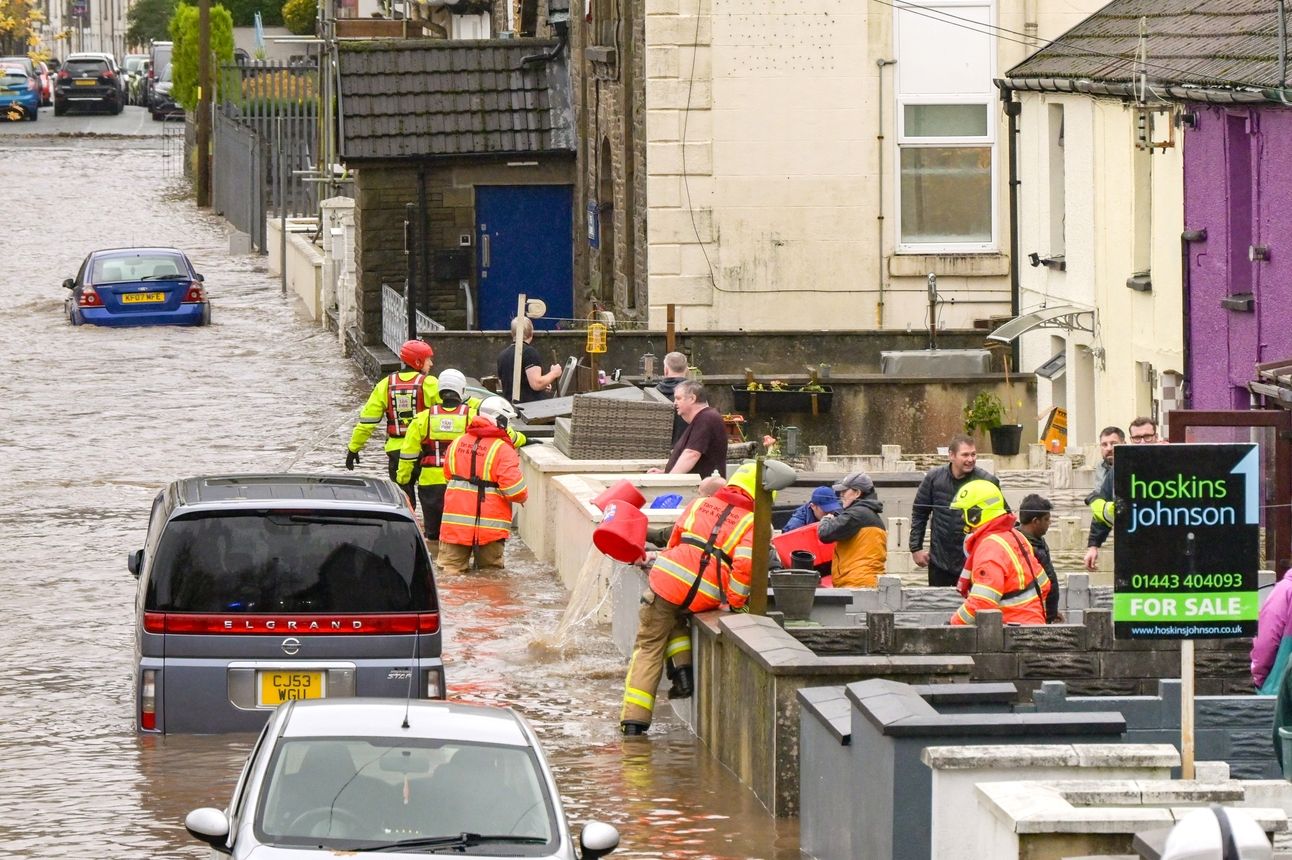In late November 2024, Storm Bert swept across the UK, leaving a devastating trail of destruction. With torrential rain, powerful winds, and record-breaking river levels, the storm caused widespread flooding, disrupted lives, and underscored the increasing frequency and severity of extreme weather events.
What Happened?
Storm Bert made landfall midweek (w/c 18th November), bringing relentless rain that overwhelmed drainage systems and caused rivers to burst their banks. By the weekend, the storm intensified, with winds exceeding 70 mph in some areas, uprooting trees, damaging buildings, and cutting power to tens of thousands of homes.
Flooding was extensive, particularly in parts of South Wales and central England. The River Taff in Pontypridd and the River Severn in Worcestershire saw dramatic overflows, inundating towns, homes, and key infrastructure. Tragically, at least five people lost their lives due to falling trees, road accidents, and rising floodwaters.
Where It Happened
Pontypridd, South Wales: The River Taff overflowed, flooding homes and businesses. Many residents expressed frustration over delayed flood warnings and inadequate preventative measures.
Worcestershire: The River Severn’s breach submerged vast areas, including sports grounds and residential neighbourhoods, leaving many stranded or forced to evacuate.
Yorkshire and Hampshire: Storm Bert’s strong winds caused fatal incidents, including the collapse of trees and traffic collisions.

Pontypridd, Wales - 24 November 2024: Flooding in a street near the town centre after the River Taff burst its banks following heavy rain from Storm Bert.
How It Happened
Storm Bert was driven by an intense low-pressure system combined with an Arctic cold front. This created a volatile weather pattern, with heavy rain saturating already sodden ground. Rivers and drainage systems, unable to cope with the volume of water, spilled over, exacerbating the crisis.
Is This the New Normal?
The devastation caused by Storm Bert is part of an alarming trend. Experts warn that climate change is increasing the frequency and severity of extreme weather events like storms and floods. Warmer global temperatures mean the atmosphere holds more moisture, leading to heavier rainfall. Rising sea levels also exacerbate the risk of coastal flooding, particularly during storm surges.
In recent years, the UK has faced several destructive storms, including Ciara and Dennis in 2020 and Arwen in 2021. Each event has highlighted vulnerabilities in the country’s flood defences, infrastructure, and emergency response systems. The Met Office has also noted a worrying pattern of more intense rainfall over shorter periods, leading to flash floods and greater disruption.
The Bigger Picture
Storm Bert has reignited discussions about how the UK is preparing for the future. Questions are being raised about the adequacy of existing flood defences, the resilience of infrastructure, and the role of government and local authorities in mitigating risks.
The events also highlight the urgent need to address climate change. Reducing greenhouse gas emissions and investing in sustainable, adaptive infrastructure are essential steps to combat the impacts of a warming world.

Pontypridd, Wales.
A Warning for the Future
As the clean-up from Storm Bert continues, the storm serves as a stark reminder of the challenges ahead. Extreme weather is no longer a distant possibility—it is here, and it is testing the resilience of communities across the UK. Preparing for and mitigating the effects of such events must remain a national priority.
Storm Bert is not just a weather event; it is a warning. A warning that the time to act is now.



